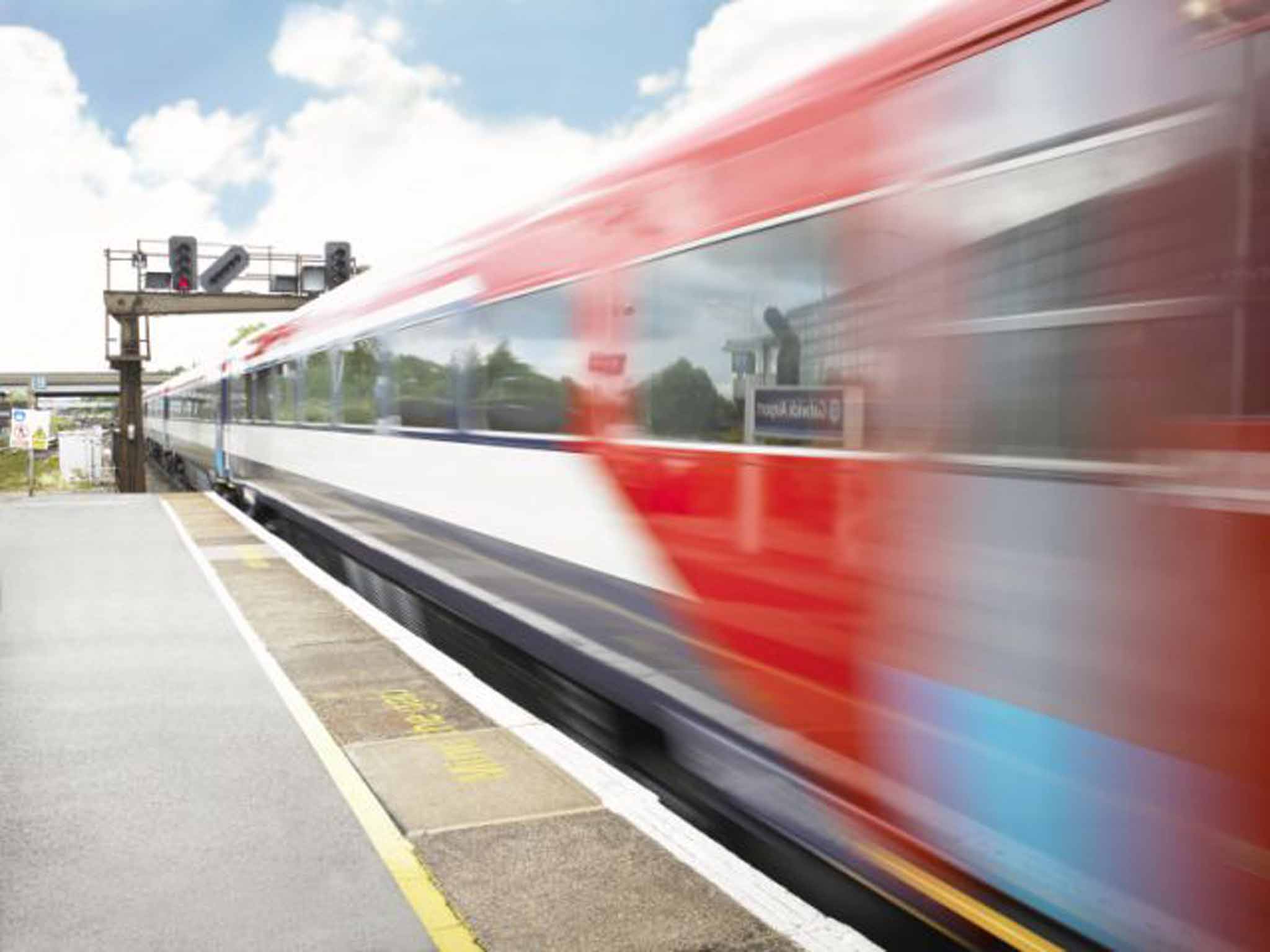The wrong kind of train, or the wrong approach?
The man who pays his way

Farmhouses and meadows drift past the window through an Impressionistic veil of winter-naked beech trees. A pillow of cloud rests on the horizon to the south-west, and above it a half-moon smiles down on the South East. Even in January the delicate landscapes of Sussex and Surrey lure the commuter's eye from a newspaper. But once the northbound train reaches Greater London, the headlines may appeal more than Coulsdon and Croydon. Had you been reading The Independent on Wednesday aboard the 7.29am from Brighton to London Victoria, you would have learnt you were travelling on "Britain's train of shame".
This is the one train that arrived at least a minute late every working day last year, and has done so again in 2015 (except when cancelled).
Proof, were it needed, that Britain's railways comprise a national embarrassment rather than an asset? Mick Cash, general secretary of the RMT union, thinks so: "Passengers paying some of the highest annual commuter fares are being taken to the cleaners by the train companies when it comes to quality and reliability."
Yet even though (too) much of my life has been spent aboard delayed trains on the London-Brighton line, I'm not so sure. The 7.29's problem: it has aspirations above its station.
Travel does strange things to time. I don't mean the interesting chronological effects when you approach the speed of light or perch on the gravitational lip of a black hole. I mean the way the travel industry manipulates the concept of punctuality; more tardiness than Tardis, if you will. If you show up for a train at Brighton four minutes after the due departure time, you will be late. But the rail regulator regards any commuter train that arrives at its final destination under five minutes late as "on time".
Even by this slovenly measure, the 7.29 was punctual only one day in four. From my experience, the Train of Shame is destined for ridicule because of its split personality. In a bid to meet the needs of Sussex commuters and airline passengers arriving at Gatwick airport, the 7.29 spends the first half of its journey hopping from one bucolic railway halt to the next, the station names writing poetry in motion. At Hassocks, I saw no cassocks, but a swivel at Wivelsfield revealed the "load factor" of my carriage to be about 30 per cent – with two-thirds of the seats in the carriage empty.
All change at Gatwick. I don't mean you have to get off one train and on to another at the airport station; I mean that the character and contents of the 7.29 is transformed once it reaches Gatwick. The load factor shoots up above 100 per cent, and it becomes a boy racer, tasked with covering the 28 miles to London in half-an-hour flat – non-stop. Amid the ranks of commuter trains, it is a rebel without a pause.
The timetable allows 120 seconds for passengers to board at Gatwick. On Wednesday morning, a tardy arrival meant only 23 seconds remained before the nouveau express was due to depart. They managed it in 84, not bad considering some had been on overnight flights. The train left only a minute adrift. It stuttered through south London, waiting its turn to experience the joys of Clapham Junction.
The 7.29 finally ran out of puff just outside Victoria, where it sat waiting for a platform slot before delivering around 1,000 people exactly nine minutes late.
Nothing unusual, according to ex-passenger David Haddrell, who told me: "I used to take it regularly for my daily commute but it got so bad, I switched to the 7.21 from Hove, actually."
Going rogue
The world has more profound concerns than a few squandered seconds here or there. But according to Mark Smith, the rail guru known as the Man in Seat Sixty-One, in a complex railway system every second counts. He used to work on the railways, running stations in east Kent.
"Operators don't always allow enough time for 'reality' to happen, with a cumulative and knock-on effect across their network." In the 1980s he observed that morning rush-hour trains leaving Headcorn and Staplehurst took at least 50 seconds to load, even though they were scheduled for a standard 20-second stop.
"No wonder the peak trains were minutes adrift when they reached the London area.
"The railway attitude has always been to do more whistle-blowing to try and get trains and passengers to stick to the plan, rather than to ask if the plan is sound in the first place."
He says South West Trains redesigned its whole timetable with robustness in mind a few years ago. "It was a more sophisticated re-think than just adding padding at the end of each journey," he says. Yet in the case of the 7.29 from Brighton just adding five minutes "recovery time" would have made it on time (in railway terms) every day this week. But then, says Mark Smith, we would find other culprits.
"There are always rogue trains on every route that never seem to run quite right."
Foreign objects
One heartening side of the past dismal days is the way the world has united to celebrate diversity. Thank goodness the UK rejects divisive elements such as the British National Party, now largely consigned to the dustbin of discredited ideologies. Except, it appears, in Bangladesh. When I finally reached the office on Wednesday, the Foreign Office had issued a warning for visitors to the South Asian nation: "British National Party (BNP) enforced general strike called on 15 January."
Forty minutes later, the travel advice was reissued, citing the Bangladesh National Party.
Subscribe to Independent Premium to bookmark this article
Want to bookmark your favourite articles and stories to read or reference later? Start your Independent Premium subscription today.

Join our commenting forum
Join thought-provoking conversations, follow other Independent readers and see their replies